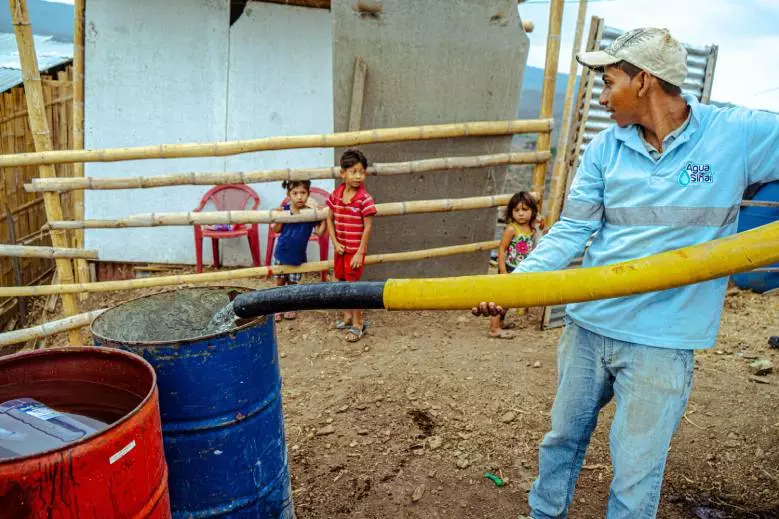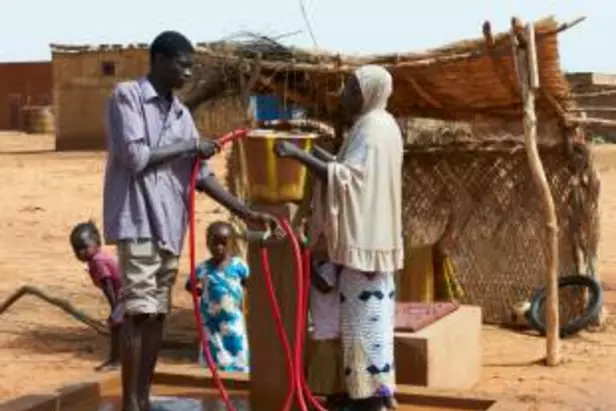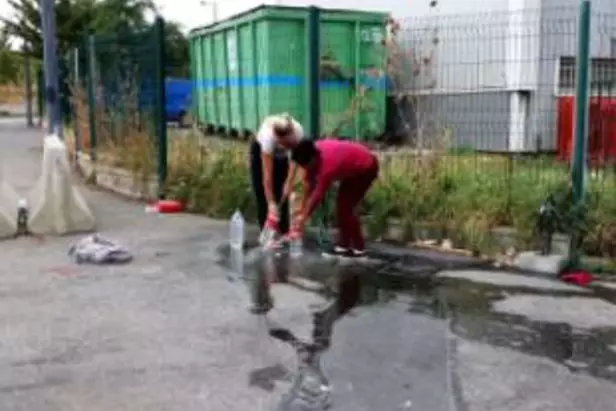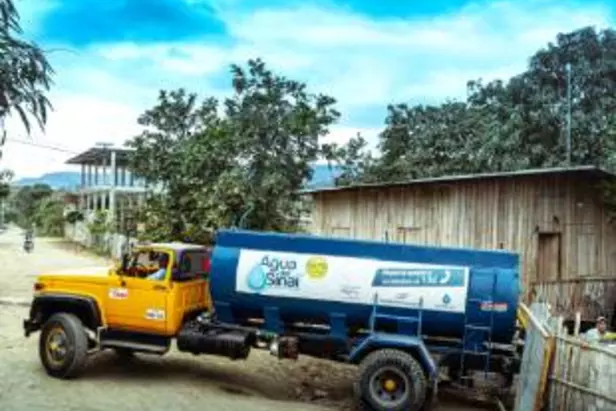In 2020, 1 in 4 people worldwide were without access to safely managed drinking water services. This rate doubles when it comes to sanitation services, with Africa the continent most affected. This situation is far from the UN’s goal for 2030 of ensuring the availability or sustainably managed water resources and sanitation for all.
Over and above this alarming reality, itself a critical challenge to public health, many people do have the necessary facilities but face difficulties, primarily surrounding their ability to pay bills. This means that urgent action is needed, today, to tackle these inequalities and ensure permanent access to water services for all.
Discover our solutions for managing urban risks >
The importance of access to drinking water
No matter at what the level — national, regional, city or even individual businesses — collective actions are needed to make sure that solutions are available to everybody. We supply and maintain essential services that are crucial to human health and development. This is why, of the 98 million people worldwide who we supply with drinking water and the 67 million who are connected to one of our sewage systems, as many as 4.17 million people benefit from inclusive programs to make sure that they can access these essential services. And our Impact 2023 program includes a commitment to boosting this number by 12% over a four-year period.
Discover our solutions for the continuity of water services in the event of natural disaster >
Our fight against unequal access to water
We adapt to local needs and realities in every part of the world, setting up inclusive programs to alleviate lack of access to drinking water.
We provide support to the most vulnerable so they can access essential water services.
- Financial assistance: we offer water at lower cost to people living in disadvantaged neighborhoods, as well as payment plans, eco-solidarity tariff structures and water voucher schemes.
- Alternative water supply solutions: we will use tanker trucks to bring water to areas where access is difficult, construct neighborhood water filling stations or set up standpipes.
- Mobilization in times of crisis: our teams are highly responsive and we can deploy mobile drinking water treatment units, for example to refugee camps or regions struck by natural disaster. Find out more about our Aquaforces on the Veolia Foundation website.
- Social support: we set up mobile agencies, mediation schemes to handle consumer complaints, information points such as the Multi-Service Mediation Information Points in France, to advise people how to manage their budgets. Digital solutions: we develop mobile apps — such as “Veolia et Moi” in France and “My Water Plus” in the Czech Republic — to help consumers track their water use.
Discover our solutions for reusing wastewater >
- Better health, economic and social conditions for local people
- Helping to combat inequalities
- Guaranteeing that people receive quality services and ensuring their right to water
Are you are a city authority? What benefits does this bring you?

We did it!

Niger
For many years, our subsidiary, the Société d’Exploitation des Eaux du Niger (SEEN), has worked to develop access to water for as many people as possible and at prices they can afford. In under-developed areas, 3,268 standpipes have been installed, each supplying an average of 250 people and managed collectively by local people.

France
The Veolia Foundation, in partnership with an NGO called Solidarités International, installed water points at several camps used by unhoused people. The program was designed to support actions taken by city authorities to support the most vulnerable members of society and help protect them from the virus, such as outreach campaigns to highlight the importance of social distancing and reopening toilet blocks etc.

Ecuador
In 2018, we set up a mobile water distribution scheme called Agua del Sinaí to provide drinking water to 130,000 residents in Monte Sinaí, an informal settlement not connected to the municipal water network. This reduced the price locals pay for water by 25%, and a GPS monitoring system makes sure that all areas are covered and that trucks arrive on time.


